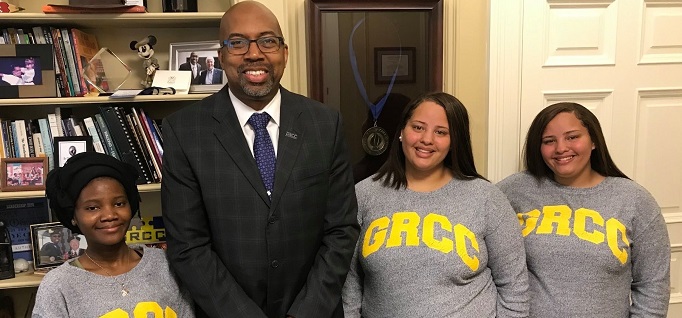Inside the Promise Zone
By David Murray
January 16, 2020
A new College Promise program is launched in Michigan.
Grand Rapids Community College (GRCC) embraces the life-changing role it will play educating students through the Grand Rapids Promise Zone, and is proud to be a partner in these efforts to strengthen the region for generations to come, GRCC President Bill Pink said.
Pink spoke at a Jan. 13 event with Mayor Rosalynn Bliss; Teresa Weatherall Neal, chairperson of the Grand Rapids Promise Zone Authority; and other leaders to discuss the program to provide a GRCC education without cost to graduates from 22 public, public charter and private high schools located within the city.
“To say the Promise Zone is a game-changer really doesn’t go far enough,” Pink said. “We are removing cost as a barrier to getting an education, helping get an associate degree, credits to transfer to continue their education and career skills. This will be life-changing for so many students and their families.”
The Grand Rapids Promise Zone scholarship is a last-dollar scholarship that will cover tuition and fees as well as books and required course materials.
GRCC will provide $500,000 in scholarships as part of the program and also has accepted the role of administering the program on behalf of the authority board.
To ensure no one is left behind, the college will reach out to schools and families to help them with the process, and also share the extensive support available to help students get started, then continue to be successful once they are attending.
Pink said the Promise Zone partnership is a natural extension of GRCC’s work across West Michigan.
‘’We are proud to partner with the 22 Promise Zone schools, but we are equally proud of our commitment to the rest of the high schools and residents in Kent and Ottawa counties,” he said. “We are the entire region’s community college, and that does not change.”
He added that the college will work with those not eligible for Promise Zone scholarships to see what other financial aid opportunities are available.
The scholarships will be funded with a combination of private and corporate donations and investments for at least the first two years. After that, additional funding may come from state funds through a “tax capture.”



